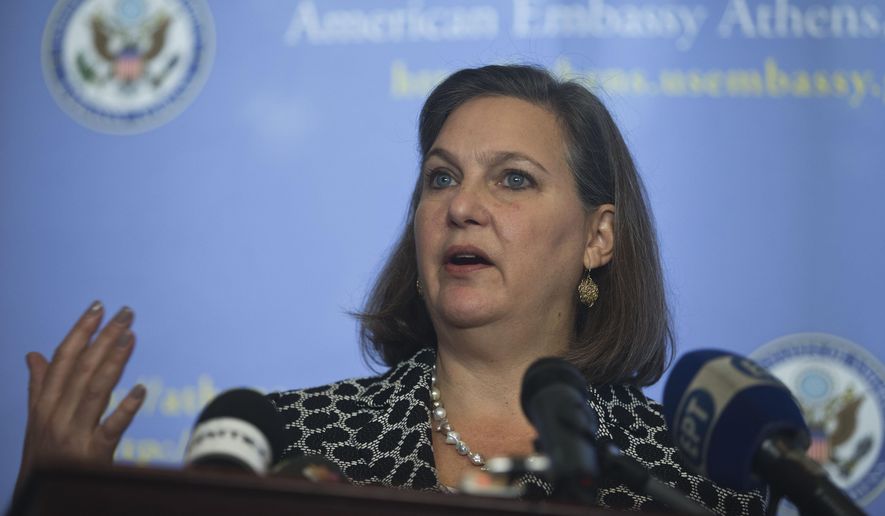Former British intelligence officer Christopher Steele visited the State Department just weeks before the 2016 U.S. presidential election to discuss the findings of his now-notorious dossier that detailed then-candidate Donald Trump’s alleged links to Russia, a Senate investigation heard on Wednesday.
“Based upon our review of the visitor logs at the State Department, Mr. Steele visited the State Department, briefing officials on the dossier in October 2016,” Senate Intelligence Committee chairman Richard Burr, Republican North Carolina, revealed during a hearing held to explore how the U.S. should respond to Moscow’s election meddling.
Victoria Nuland, assistant secretary of state for European and Eurasian Affairs for the Obama administration, discussed her own history with the dossier and its charges at the hearing.
A career diplomat and foreign policy adviser who also served in the George W. Bush administration as the U.S. ambassador to NATO, Ms. Nuland is a controversial figure in the Russian election meddling saga for reportedly connecting FBI officials to Mr. Steele.
According to the multiple reports, Ms. Nuland played an instrumental role in the dissemination of Mr. Steele’s negative campaign research on Mr. Trump, giving permission for an FBI agent in London to meet with the former U.K. spy in the summer of 2016. Ms. Nuland knew of Mr. Steele’s earlier work on Russia and Ukraine-related issues.
Mr. Burr at one point asked Ms. Nuland when she first became aware of Mr. Steele’s investigations into Mr. Trump.
Answering carefully, she told the panel she saw “excerpts” from the 35-page report in mid-July 2016.
“It wasn’t the complete thing, which I didn’t see until it was published in the U.S. press,” she said.
Mr. Burr then revealed that — based upon the committee’s investigation of visitor logs — Mr. Steele briefed State Department officials about his work on the dossier in October 2016.
Asked if she had been present for the briefing, Ms. Nuland said she “actively chose not to be a part” but then added that she “was not aware of [the briefing] until afterwards.”
Mr. Burr said more could be discussed behind closed doors.
The 35-page Steele dossier — an unverified collection of raw opposition research paid for by the Democratic Party and the Hillary Clinton campaign — kicked off unprecedented speculation and an investigation into possible collusion between the Trump campaign and the Kremlin, which Mr. Steele alleged.
Republicans have roundly criticized the FBI for relying on the material to justify at least in part a surveillance operation in 2016 and 2017 on Trump campaign associates — with multiple congressional committees having investigated how Obama officials promoted Mr. Steele’s work.
At the hearing, Ms. Nuland’s criticized the Trump administration for not launching a more vigorous campaign to prevent future meddling by Russia in U.S. elections.
Mr. Burr and Virginia Sen. Mark Warner, the committee’s ranking Democrat said the Obama administration bore its share of the blame for not moving more aggressively to stop the meddling during the 2016 campaign.
Mr. Burr said the Obama White House was less than effective because they “wanted to warn the Russians to stop interfering but avoid the appearance of putting their thumb on the scale in an election year.”
Mr. Warner added that the Obama administration should not have been surprised by the Kremlin’s efforts, given their previous efforts to influence events in Ukraine.
• Dan Boylan can be reached at dboylan@washingtontimes.com.




Please read our comment policy before commenting.